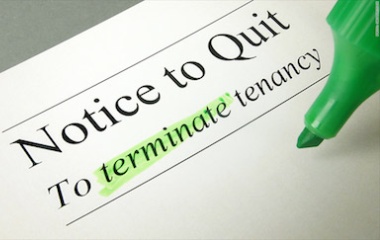
One of the beautiful things about studying Gemara is delighting in how it seamlessly flows from one idea to another; how it blends legal rulings, moral teachings and philosophical musings with personal vignettes, historical information and sociological observations – and much more. The generations blend together, as scholars living hundreds of years and hundreds of miles apart engage in conversation with each other[1]. The Talmud is sublime poetry and like a great poem it must also be studied for its form and not just its content.
Taking its cue from the Torah itself, the Talmud tells it like it is, neither exaggerating the virtues nor hiding the faults of its “heroes”, nor exaggerating the faults or hiding the virtues of its “villains”. Seeing the humanity of the Sages is most refreshing and truly inspiring.
Due to the nature of Talmudic discourse it is not uncommon that in the midst of a legal discussion the Talmud will casually record some amazing story and move back to legal technicalities without missing a beat. The discussion about priorities in returning lost objects presents one such example.
In our last post we discussed the ruling of the Mishna (Bava Metzia 33a) that one must return the lost object of one’s teacher before that of one’s father. But who exactly qualifies as a teacher? The Gemara has a rather far ranging debate on the subject.
“Our Rabbis taught: The teacher referred to is he who instructed him in wisdom, not he who taught him Bible and Mishnah, these are the words of Rav Meir. Rav Yehuda said: He from whom one has derived the greater part of his knowledge. Rav Yossi said: Even if he enlightened his eyes in a single Mishnah only, he is his teacher” (Bava Metzia 33a).
Rav Meir argues that the teaching of information alone is not enough. Only one who teaches wisdom, i.e. logical analysis and the ability to differentiate between seemingly similar cases (see Rashi s.v. shelamdo chochma), reaches the level of a teacher who takes precedence over one’s father. If such was true in Mishnaic times when knowledge was very, very difficult to attain – it was still forbidden to write down the Oral Law, not that that mattered for most – how much more true is it today when anyone with a computer can access almost all of human knowledge with the click of a button.
Rav Yehuda goes a step further, arguing that it is not enough to have learned how to think from one’s teacher. One can only place one’s teacher before one’s parent if this is the one teacher from whom one has gained most of one’s wisdom. It is not even enough that this be the teacher from whom one has learned the most; this teacher who supersedes one’s father must be responsible for the majority of one’s wisdom[2]. Whether this reflects an effort to ensure the rarity of a parent playing second fiddle or reflects the ideal model of a teacher-student relationship - or some combination of both - is hard to know.
Going to the other extreme Rav Yossi argues that even one who illuminates one single teaching is called one’s Rebbe and would supersede one’s parent! The study of Torah is equivalent to all mitzvoth and as “the learning of Torah has no measure”, even one teaching, even the most “insignificant” teaching, bestows the title of teacher. “Raba said: for example Rav Sehora, who told me the meaning of zohama listron.” Zohama listron refers to a type of vessel and has application to the laws of purity and impurity, laws that were no longer relevant at the time of the Mishna. Rav Yossi applies the dictum of our Sages (Pirkei Avot 6:3) that “One who learns from his fellow a single chapter [of Torah], a single law, a single verse, a single statement, or even a single letter, must treat him with honour” most broadly.
Rav Yossi’s position is in actual fact a stinging rebuke to the parent who is so ignorant he teaches his children almost nothing in the ways of Torah - at least according to the primary understanding of the Mishna. The Mishna rules that “if his father is wise his father comes first.” While some argue that the father must be equal to the teacher, others rule that is not necessary. Even if the father teaches (or pays for the education of) his son just a little, he comes first. If this is the case, Rav Yossi’s view challenges this norm. While such ignorance was common in Talmudic times (see Rabbi Akiva) where education was by and large limited to the (financial) elite, let a father teach a child one verse and he will always come first.
The Gemara concludes with a fourth view, one based on the practice in Bavel, that the only person who would take precedence over one’s parent is one’s rabo muvhak[3], primary teacher, from whom one has learned the most.
It is at this point where the legal discussion takes an unexpected and very personal twist.
Rav Chisda asked his teacher Rav Huna if this law would apply where the teacher is in need of the student as might be the case where the student has a teaching from another sage to pass along to the teacher. Rav Huna thinking Rav Chisda was referring to him felt insulted by the question and replied “Chisda, Chisda, I do not need you, but you need me.’” We have no way of knowing if Rav Huna’s interpretation of Rav Chisda’s question was correct, but correct or not the implications were enormous. “Forty years ikpid, they bore resentment and did not visit each other.”
“Ein hakapdan melamed” (Pirkei Avot 2:5)the strict one cannot be a[n effective] teacher. By using the word ikpid, the Sages are subtly (or maybe not so subtly) critiquing Rav Huna and to a lesser extent, Rav Chisda. How can it be that a question, innocent or not, could lead to 40 years of silence[4]? No matter who may have originally been at fault, does it really matter now?
In truth, there is no such thing as a teacher who does not need his students. Not just so he can have someone to teach, but because we learn “the most from our students.”
But at least the resentment did not last a lifetime and each realized their role in this tragic turn of events. “Rav Chisda kept forty fasts because Rav Huna had felt himself humiliated, whilst Rav Huna kept forty fasts for having suspected Rav Chisda.” While we are left to ponder this exchange between teacher and student, the Gemara returns to discussing whose lost object takes precedence. But such legalities are not the main teaching of our discussion.
[1] Contrary to what many people think the Talmud was edited with the utmost precision as can be seen, to cite one example, by how the Sages converse with one another. When two Sages are actually in the same beit midrash discussing an issue together each of their views will be introduce by “amar lei, he said to him.” When those “discussing” an issue lived in different eras or areas the Talmud simply says “amar, he said.“
[2] With wisdom defined as analytical ability it is most difficult to ascertain exactly who is responsible for what – often it is the combination of teachers and experiences that enable sophisticated analysis.
[3] Many commentaries (see for example, Lechem Mishne, Talmud Torah 5:4) note that we no longer have a personal rabo muvhak as we gain most of our knowledge from books - or is it the internet!
[4] Rabbeinu Chananel claims that the forty years is to be read as part of Rav Huna’s response as follows; “Chisda, Chisda”,' he exclaimed; “I do not need you, but you need me for forty years”– and not the length of time they were angry at each other. This in keeping with the rabbinic insight that “one does not fully understand the teachings of one’s master for forty years” (Avodah Zara 5b). Nonetheless the fact that teacher and student could be angry with each other for any length of time is sad indeed.



